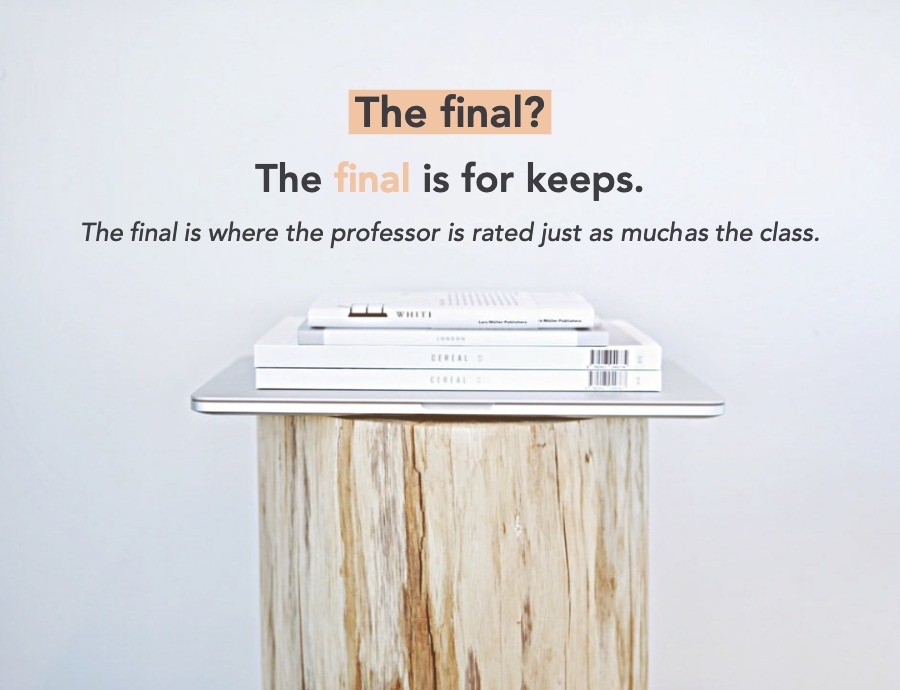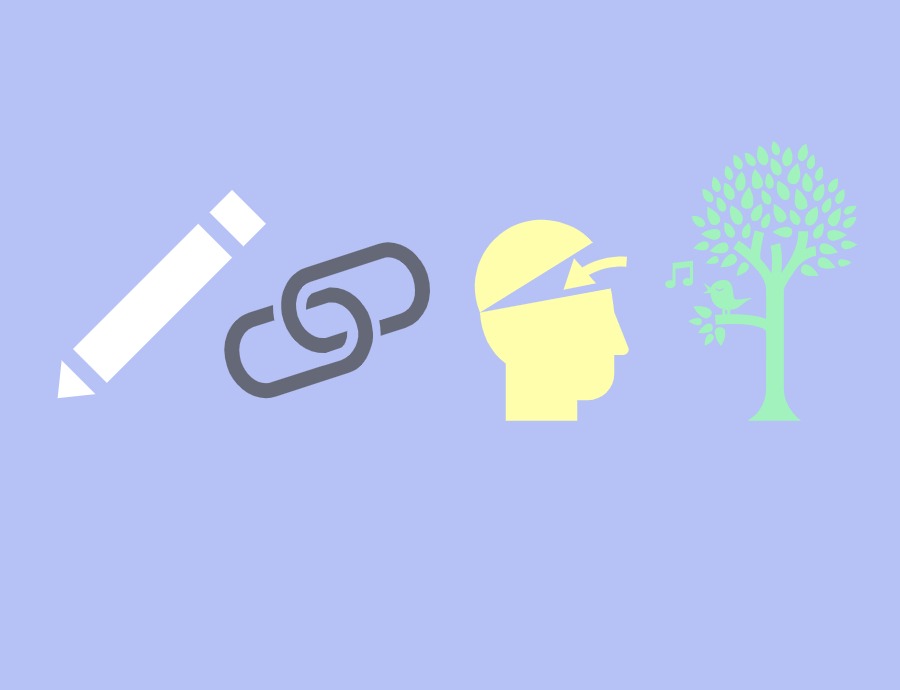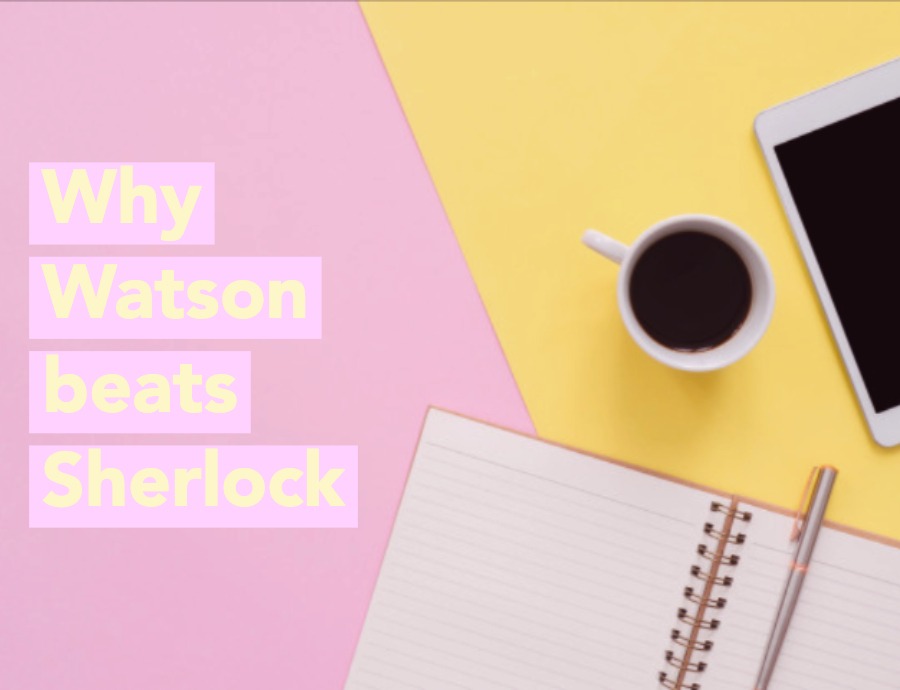You can always improve at everything! This looks like the sort of advice you’d see on Instagram, usually photoshopped in a font you’ve never seen before, overlaid on a photo of a tropical beach. Annoying “inspiration” Instagram influencers who think six words count as both wisdom and a full day’s work.
Luckily this idea is a lot more useful in academia. Because you can always improve at everything. In other words, you should never be stuck on just one thing. Stress and frustration are powerful enemies of progress. They’re also things that turn up a lot when you’re studying, which is why we make sure they don’t trick us into wasting our time.
When we’re studying we often set ourselves schedules, objectives, clear lists of things we want to complete tonight so that they’re over and one with. But if one part of one course just isn’t working for you, if it’s not lining up with your mind tonight, if it’s getting worse and worse the more you look at it, just stop! Don’t go into a doomed spiral of screwing up your forehead (and schedule) by staring at the same thing for hours. Dedication doesn’t mean bashing your brain off a brick wall. If you’ve already reviewed the basics and it’s just not working, give your subconscious some time to chew it over by switching to another subject.
It’s far too easy to self-destructively spend several hours on just one part of just one course, convincing yourself that you’re “doing the hard work” and “going to crack it tonight no matter what”. But you only have a certain number of hours for studying. Spending them all on something you simply aren’t getting yet is the worst investment of your limited time.
You can improve at everything else instead! Keep moving forward! Keep learning new things, or polishing parts of the course you’re only okay with. You’ll earn far more marks in the same amount of time. And the act of working on other things clears your mind of the original problems. Solving other problems, knowing that you can do them, relaxes the stress and frustration threatening to trap you in one of your weak points. And when you’re brain’s buzzing happily through everything else it’s much more likely to suddenly “get” what you’re working on.
“Getting better at everything” sounds like an impossible goal. But it means scoring as many points as possible. And that’s what every exam student does every year. So score more by studying it all!
Luckily this idea is a lot more useful in academia. Because you can always improve at everything. In other words, you should never be stuck on just one thing. Stress and frustration are powerful enemies of progress. They’re also things that turn up a lot when you’re studying, which is why we make sure they don’t trick us into wasting our time.
Dedication doesn’t mean bashing your brain off a brick wall.
When we’re studying we often set ourselves schedules, objectives, clear lists of things we want to complete tonight so that they’re over and one with. But if one part of one course just isn’t working for you, if it’s not lining up with your mind tonight, if it’s getting worse and worse the more you look at it, just stop! Don’t go into a doomed spiral of screwing up your forehead (and schedule) by staring at the same thing for hours. Dedication doesn’t mean bashing your brain off a brick wall. If you’ve already reviewed the basics and it’s just not working, give your subconscious some time to chew it over by switching to another subject.
It’s far too easy to self-destructively spend several hours on just one part of just one course, convincing yourself that you’re “doing the hard work” and “going to crack it tonight no matter what”. But you only have a certain number of hours for studying. Spending them all on something you simply aren’t getting yet is the worst investment of your limited time.
You can improve at everything else instead! Keep moving forward! Keep learning new things, or polishing parts of the course you’re only okay with. You’ll earn far more marks in the same amount of time. And the act of working on other things clears your mind of the original problems. Solving other problems, knowing that you can do them, relaxes the stress and frustration threatening to trap you in one of your weak points. And when you’re brain’s buzzing happily through everything else it’s much more likely to suddenly “get” what you’re working on.
“Getting better at everything” sounds like an impossible goal. But it means scoring as many points as possible. And that’s what every exam student does every year. So score more by studying it all!








